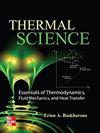COVID-19大流行期间封锁对贝尔格莱德空气质量的影响
IF 1.1
4区 工程技术
Q4 THERMODYNAMICS
引用次数: 0
摘要
塞尔维亚共和国环境保护局在全国各地的许多测量点不断监测和收集空气质量参数。结果显示,封锁期间记录的空气污染水平与前几年同期记录的空气污染水平不同。在本文中,我们研究了2020年和前几年的污染物浓度趋势,以确定这些趋势的根本原因。2015年至2020年期间,贝尔格莱德的5个监测站从3月初到7月底对污染物进行了测量。由于没有每小时的数据,二氧化氮、二氧化硫、悬浮粒子PM10和PM2.5是每天的平均值,而一氧化碳和臭氧是每天8小时的最大值。只有在获得同一时期的数据时,即将2020年与前几年进行比较时,才对浓度进行比较和平均。结果与年限值和日限值(分别为臭氧和一氧化碳8h最大值)以及浓度随时间的变化进行了比较。计算和显示这些值的目的是专门确定在COVID-19病毒大流行隔离期间空气污染的变化。总体来看,贝尔格莱德2020年4个站点NO2浓度较低;两站PM2.5浓度均较低;PM10浓度在一个站点较高,在另一个站点较低;SO2浓度高于往年(2015-2019年)。本文章由计算机程序翻译,如有差异,请以英文原文为准。
Impact of lockdown on air quality in Belgrade during COVID-19 pandemic
The Environmental Protection Agency of the Republic of Serbia continuously monitors and collects air quality parameters at numerous measuring points throughout the country. The results revealed that the levels of air pollution recorded during the lockdown differed from those recorded during the same period the previous years. In this paper, we examined pollutant concentration trends in 2020 and a few previous years to determine the underlying causes of these trends. Pollutants are measured at five stations in Belgrade from the beginning of March to the end of July between 2015 and 2020. Because no hourly data were available, nitrogen dioxide, sulphur dioxide, and suspended particles PM10 and PM2.5 are average daily values, whereas carbon monoxide and ozone are daily 8-hour maximums. Concentrations were compared and averaged only when data for the same period over time was available, i.e. when comparing 2020 to previous years. The results were compared to the annual and daily limit values (for ozone and carbon monoxide 8h maximums, respectively), as well as the variations in concentrations over time. The goal of calculating and displaying these values is to specifically identify a change in air pollution during the COVID-19 virus pandemic isolation period. In general, for Belgrade in 2020, NO2 concentrations are lower at four stations; PM2.5 concentrations are lower at two stations; PM10 concentrations are higher at one station and lower at another; and SO2 concentrations are higher than in previous years (2015-2019).
求助全文
通过发布文献求助,成功后即可免费获取论文全文。
去求助
来源期刊

Thermal Science
工程技术-热力学
CiteScore
2.70
自引率
29.40%
发文量
399
审稿时长
5 months
期刊介绍:
The main aims of Thermal Science
to publish papers giving results of the fundamental and applied research in different, but closely connected fields:
fluid mechanics (mainly turbulent flows), heat transfer, mass transfer, combustion and chemical processes
in single, and specifically in multi-phase and multi-component flows
in high-temperature chemically reacting flows
processes present in thermal engineering, energy generating or consuming equipment, process and chemical engineering equipment and devices, ecological engineering,
The important characteristic of the journal is the orientation to the fundamental results of the investigations of different physical and chemical processes, always jointly present in real conditions, and their mutual influence. To publish papers written by experts from different fields: mechanical engineering, chemical engineering, fluid dynamics, thermodynamics and related fields. To inform international scientific community about the recent, and most prominent fundamental results achieved in the South-East European region, and particularly in Serbia, and - vice versa - to inform the scientific community from South-East European Region about recent fundamental and applied scientific achievements in developed countries, serving as a basis for technology development. To achieve international standards of the published papers, by the engagement of experts from different countries in the International Advisory board.
 求助内容:
求助内容: 应助结果提醒方式:
应助结果提醒方式:


